Want to boost organic traffic and dominate niche marketing? The key lies in long-tail keywords! These specific, low-competition search terms help you reach the right audience while improving search rankings. Unlike broad, high-volume keywords, long-tail keywords attract qualified leads with a high intent to convert. Whether you’re an eCommerce business, a content creator, or a local service provider, leveraging long-tail keywords can be a game-changer.
In this blog, we’ll explore why long-tail keywords matter, how they enhance your niche marketing strategy, and how to incorporate them for maximum impact. With the right keyword strategy, you can outrank competitors, increase engagement, and drive sustainable traffic to your website.
If you’re tired of struggling with high-competition keywords, it’s time to embrace the power of long-tail keywords and watch your organic reach skyrocket!
Table of Contents
- What Are Long-Tail Keywords?
- Why Are Long-Tail Keywords Crucial for Niche Marketing?
- How Long-Tail Keywords Boost Organic Traffic
- Effective Strategies to Find and Use Long-Tail Keywords
- Conclusion: Unlock the Power of Long-Tail Keywords
What Are Long-Tail Keywords?

Before diving into strategy, let’s break down what long-tail keywords actually are. These are longer, more specific search phrases that target a niche audience.
For example:
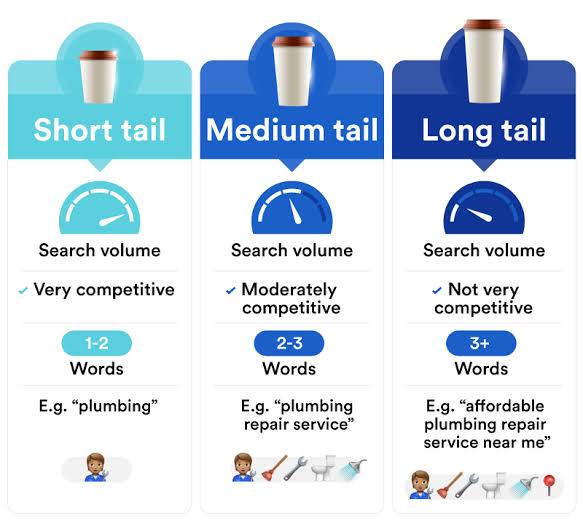
- Short-tail keyword: “Makeup”
- Long-tail keyword: “Best bridal makeup for dusky skin in India”
Although long-tail keywords have lower search volume, they attract more engaged users who are closer to making a decision—whether it’s purchasing a product, signing up for a service, or consuming specific content.
Why Are Long-Tail Keywords Crucial for Niche Marketing?
1. Higher Search Intent = Higher Conversions
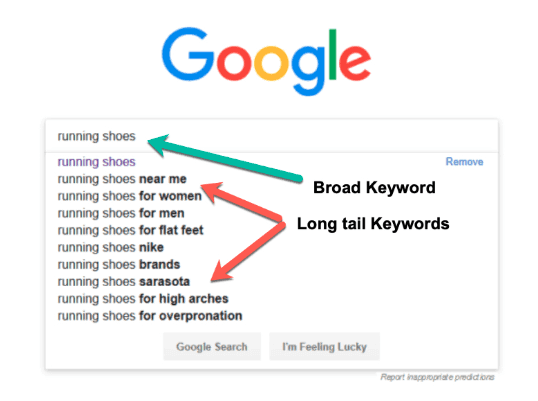
Users searching with long-tail keywords often have a clear purpose. For example, someone searching for “best organic skincare for acne-prone skin” is likely looking to buy, making them a more valuable lead than someone just searching for “skincare.”
2. Lower Competition, Better Rankings
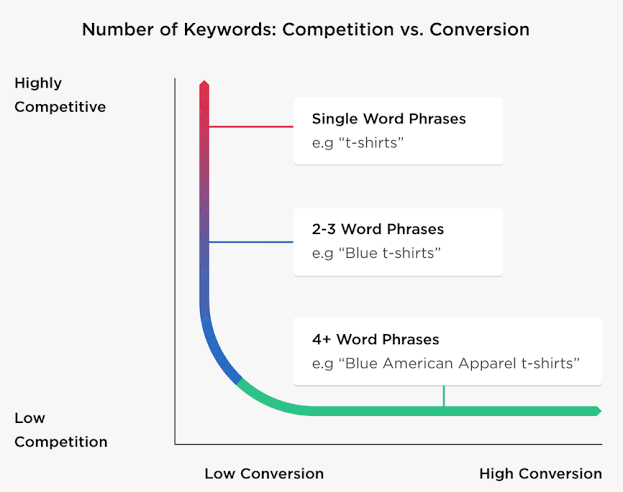
Short-tail keywords are dominated by big brands and high-authority websites. But long-tail keywords allow smaller businesses and content creators to compete effectively by targeting specific audience segments.
3. Enhanced User Experience & Engagement
When users find exactly what they’re searching for, they stay longer on your site, engage with your content, and are more likely to take action—whether it’s subscribing, purchasing, or sharing.
4. Cost-Effective for SEO & PPC

If you’re running Google Ads, targeting long-tail keywords can significantly lower your cost-per-click (CPC) while increasing ROI. These keywords ensure you’re reaching the right audience without breaking the bank.
How Long-Tail Keywords Boost Organic Traffic
1. More Visibility in Voice Search

With the rise of voice search, users are asking full questions instead of typing short phrases. Optimising for long-tail keywords like “What is the best foundation for oily skin in humid weather?” helps your content appear in voice search results.
2. Better Content Targeting
When you align your blog posts, product descriptions, and landing pages with long-tail keywords, Google understands your content better and ranks it higher for relevant searches.
3. Increased Click-Through Rates (CTR)
Users are more likely to click on a search result that directly answers their query. A blog titled “Best Budget DSLR Cameras for Beginners in 2025” will have a higher CTR than a generic “Best DSLR Cameras.”
4. Strengthening Your SEO Strategy
Google values relevant content that answers user intent. By focusing on long-tail keywords, you naturally improve your site’s dwell time, engagement, and overall SEO performance.
Effective Strategies to Find and Use Long-Tail Keywords
1. Use Google’s “People Also Ask” & Autocomplete
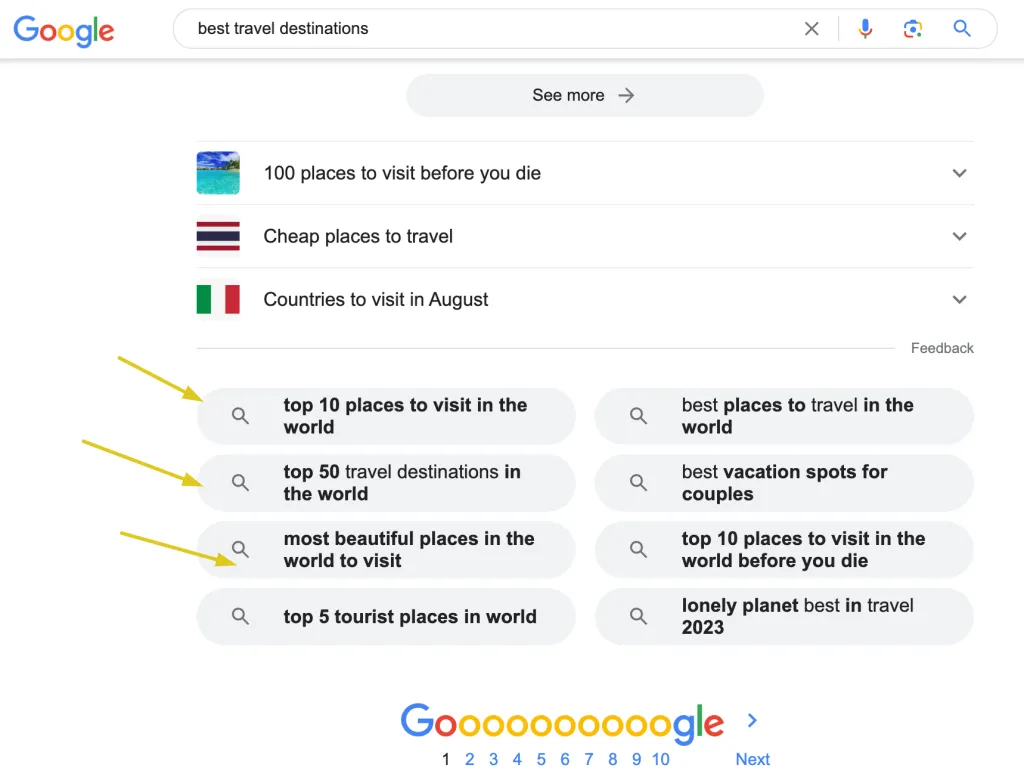
Type a broad keyword into Google, and you’ll see suggested searches—these are excellent sources of long-tail keywords that people are actively looking for.
2. Leverage SEO Tools
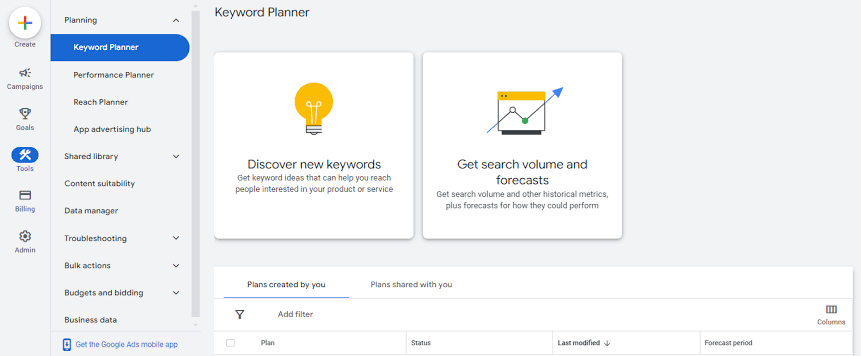
Use tools like:
- Google Keyword Planner
- Ahrefs
- SEMrush
- AnswerThePublic
These tools provide data on search volume, competition, and related keywords, helping you craft an effective strategy.
3. Create Content Around Long-Tail Keywords
Once you’ve identified long-tail keywords, use them strategically in:
- Blog titles and subheadings
- Meta descriptions
- Image alt texts
- Product descriptions
- FAQs
Example: If your long-tail keyword is “Best cruelty-free foundation for oily skin,” structure your blog post with relevant subtopics addressing concerns like coverage, longevity, and brand recommendations.
4. Answer Niche-Specific Questions
Google rewards content that solves real problems. If your audience frequently searches for “How to do minimalist bridal makeup for a daytime wedding,” write a detailed, value-packed blog addressing that exact query.
5. Optimize for Featured Snippets
Long-tail, question-based queries often appear in Google’s Featured Snippets. Structure your content in a Q&A format to increase the chances of securing that top position.
Example:
Question: What are the best vegan skincare brands for dry skin?
Answer: Some of the best vegan skincare brands for dry skin include XYZ, ABC, and DEF. These brands use plant-based ingredients to deeply hydrate the skin without harsh chemicals.
Conclusion: Unlock the Power of Long-Tail Keywords
If you want to boost organic traffic, focusing on long-tail keywords is non-negotiable. They help you target the right audience, rank higher in searches, and increase conversions—all while keeping SEO costs low.
Start incorporating long-tail keywords into your content strategy today. Whether you’re a blogger, a business, or an eCommerce brand, these keywords can take your online presence to the next level.
Ready to dominate niche marketing with smart SEO? Start researching your long-tail keywords now and watch your traffic soar!





